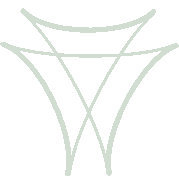Consulting is much more than giving technical advice to solve a problem, and it differs from providing Engineering Services. Consulting Services focus on advice, people, and processes, whereas Engineering Services focus on technical problems and solutions. However, there can be overlap and problems addressed in each area can be related. Sometimes it's a distinction without a difference. Below is a presentation of Consulting Services and how they can benefit you.
Independent Review
An independent review of engineering processes and methodologies can identify deficiencies and risks, and can identify ways to improve efficiency. An independent review can also ensure that all aspects of a design have been addressed and that technical issues are detected early and resolved before a milestone review. It is especially important to identify mission-critical issues as early as possible. An independent review, along with technical advice, can also help resolve a customer's concerns or objections.
Expert Advice
You may need expert advice from a fresh perspective on a specific aspect of an engineering problem, or you may need advice on a highly specialized or complex problem outside of the expertise of your engineering staff. In some cases engineers may disagree on a problem or solution, which can be evaluated and resolved by an independent and unbiased expert. Collaboration with your engineers is key to gain buy‑in and to ensure that everyone involved understands and agrees to the problem and solution.
Facilitation and Coaching
A facilitator helps your engineering team to decide what goals they want to achieve, how they will work together to achieve their goals, and to implement necessary changes to achieve their goals. A goal may be, for example, to develop or improve the team's engineering processes or to develop a competitive technical capability.
A coach helps an individual or group understand and clarify their challenges and objectives, and identifies strategies to address the challenges and to achieve their objectives. The challenges and objectives could be immediate and short-term, and specific to a current or upcoming task, or they could be long-term and pertain to their role in the organization. Coaching can help an individual learn from their experience and experience of their peers. This differs from mentoring, since coaching is short-term or intermittent, whereas mentoring is on-going and routine and usually by a more senior individual in the organization.
Education and Training
Your engineering staff should have on-going regular education to continually improve their knowledge in engineering, including an understanding of new methodologies, trends, and standards. Education gives the engineer additional specialized knowledge. Education does not have to lead to a degree, nor does it have to be specific to an immediate or near-term task, but it adds value to the individual for the benefit of both the individual and the organization. Training improves skills to perform general routine tasks and may not be specialized. The terms education and training are often used interchangeably, but I prefer to make a distinction.
I can teach courses and seminars in Attitude Determination, Attitude Control, and Pointing Performance Analysis and Image Motion Optical Transfer Functions. See the Courses tab for course descriptions.
Problem Solving
Difficulties can occur when
- a problem is unclear or perceived, which impedes finding a solution, or
- a problem is misidentified, which leads to an invalid solution, or
- the approach to solving a problem is unclear, which causes delay, or
- the problem is organizational, such as silos (information is not shared between groups) or cliques (decisions are by a few individuals excluding team participation), or
- there is adherence to problematic but institutionalized methods and procedures.
Consultation with an expert outside your organization can help you see through the fog to identify problems and solutions. By working with your staff, I can listen to different points of view to identify and resolve problems and areas of disagreement.
Research
I can research areas of technology that you need to know about so that you can make an informed decision to make improvements in your existing business or to pursue new business directions. For example, obsolescence requires that you consider new hardware that could either impact several subsystems or interfaces to a single subsystem (GN&C for example). Another example is to update and improve your engineering processes to reduce schedule, cost, and risk.
Technical sections of Proposals
You may need help with the technical section of a proposal for a project that requires specialized expertise and experience, or perhaps your staff is too busy to work on the proposal, or you want an outside review of the technical section.
I can work sample problems, performing preliminary analysis to support a proposed concept, and assist in planning and costing.I have the technical writing skills needed to clearly and concisely convey your proposal. I can provide specialized expertise and input to your proposals to help you win your next bid!
I can support your proposal effort as either a paid consultant, or at my expense under a teaming arrangement. The teaming arrangement offsets some of your B&P cost, allows you to include my credentials in the proposal, and adds expertise to the project when you are awarded the project.
Copyright © 2021 by Mark E. Pittelkau and Aerospace Control Systems, LLC
